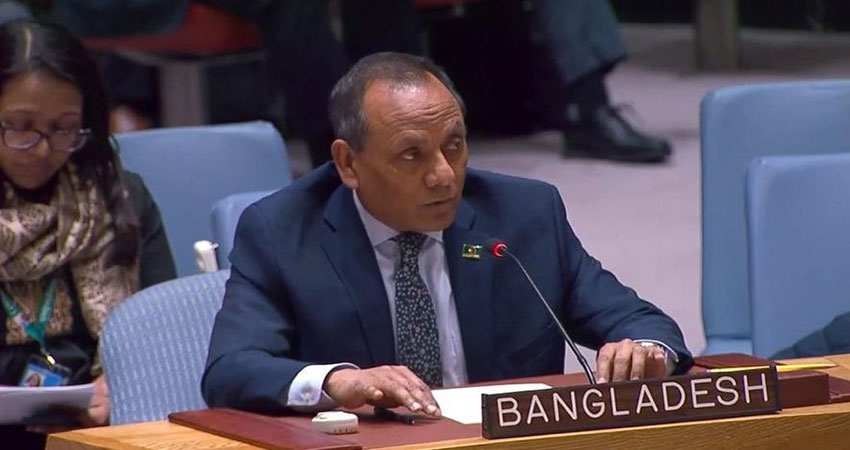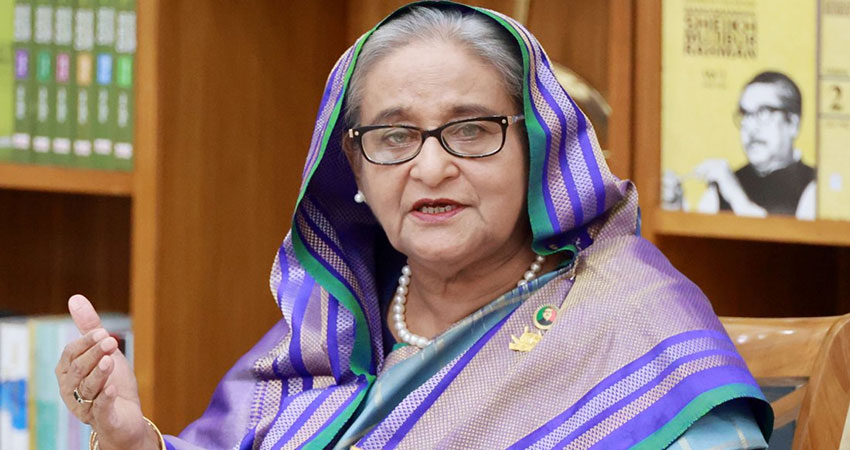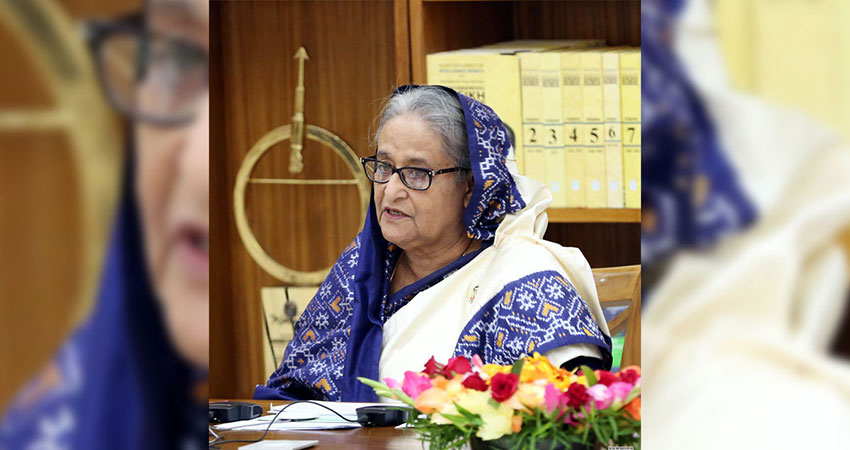Bangladesh is sounding a clarion call to the world as it grapples with the convergence of two grave challenges - flooding and climate change. Floods submerge around 55-60% of Bangladesh every year, said recent report published by Grantham Research Institute on Climate Change and the Environment and Centre for Climate Change Economics.
The research also indicated that by 2070-2099, peak river flow could surge by a staggering 36% under a high-emissions scenario, said a press release.
The situation has escalated dramatically due to the intensifying impacts of climate change, demanding an urgent and comprehensive response on a global scale.
According to the report, over half of the country's population is exposed to high flood risks; Bangladesh stands at the crossroads of a crisis with grave humanitarian, economic, and environmental consequences. Moreover, as climate change accelerates, Bangladesh's plight becomes even direr. The roots of this issue run deep, with climate change driving erratic rainfall patterns, intensifying flash floods, rising sea levels, and hastening glacial melting.
This intricate system makes it susceptible to flood types, including monsoon, flash, rainfall-induced, and tidal floods.
Dr AKM Saiful Islam, a professor and the director of the Institute of Water and Flood Management (IWFM) at Bangladesh University of Engineering and Technology (BUET) said: "As we witness the escalating flood risk facing Bangladesh, recent events such as the devastating floods in Bandarban and Sylhet serve as stark reminders of the urgency of the situation. Climate change is intensifying the water cycle, which brings more intense rainfall and associated flooding. The vulnerable state of our nation demands immediate action. It is imperative that we embark on a comprehensive energy transition while simultaneously fortifying our flood management and disaster preparedness strategies. The time for robust climate actions is now, as we work towards safeguarding our communities, livelihood, ecosystem, biodiversity, environment, and our future generations."
Without greater adaptation action and resilience-building, the humanitarian and economic costs of flooding in Bangladesh, which are already high, are expected to increase further due to climate change. The mounting toll of these floods is felt in lost lives and economic devastation.
Between 1971 and 2014, 78 floods claimed over 41,783 lives and inflicted economic damages totalling $12.2 billion. The 2022 flood is estimated to have cost $1.0 billion and affected 7.3 million people.
"For the last three days, I've desperately needed drinking water since all water sources, even tube wells, are underwater due to the floods. We have never experienced such flooding in our area before. In the history of our area, such an unprecedented catastrophe has never unfolded before our disbelieving eyes. The magnitude of our suffering knows no bounds and the urgency of our situation cannot be overstated. We completely remained helpless, full of misery and frightened," said Umme Kulsoom, a recent flood victim of Kalaghata in Bandarban.
Bangladesh's response to this existential threat has evolved through the decades. Early efforts centred on structural measures such as embankments, but these strategies proved inadequate, causing unintended compounding risks, such as: making flood-prone areas appear safer than they are and exposing a higher share of the population to flood risk.
Recent policies herald a paradigm shift—a "living with floods" approach that emphasizes non-structural interventions and ecosystem-based solutions. However, progress has been marred by barriers such as inadequate funding, fragmented governance, and limited institutional capacity.
The Bangladesh Delta Plan 2100 (BDP 2100) lies at the forefront of Bangladesh's resilience strategy. This ambitious plan seeks to integrate sector policies, foster equitable water governance, and enhance resilience against floods and climate change. Yet, challenges persist, including insufficient knowledge about vulnerabilities and local needs; a lack of capacity in local institutions such as the Ministry of Disaster Management and Relief; governance issues; and poor access to funding for investment in adaptation.
The report highlighted that while Bangladesh contributes just 0.25% of global greenhouse gas emissions, its plight underscores the interconnectedness of climate action. The nation's survival hinges on a concerted global effort to mitigate the impacts of climate change, especially from high-emitting industrial countries. Bangladesh must make efforts to fulfill its Nationally Determined Contribution (NDC) in support of the Paris Agreement.
However, the agriculture and energy sectors are responsible for most of the country's emissions, contributing 44% and 39%, respectively and are estimated to peak in 2040. While Bangladesh has mitigation plans and commitments, its current and planned actions to reduce power sector emissions must be revised to put it on a pathway to decarbonise the energy system. Hence, the agricultural and energy sectors must undergo a transformation, prioritizing renewable energy sources to pave the way toward sustainability.
The report recommended that a low-carbon pathway is crucial for Bangladesh to tackle future flood crises. A comprehensive shift in policymaking, moving away from fossil fuels and embracing sustainable power sector policies, is important. Strengthening early warning systems for flood preparedness, improving understanding of vulnerabilities and local needs, increasing capacity within local institutions, and embracing nature-based solutions are vital. A coordinated approach involving government bodies, NGOs, civil society organizations, the private sector, research institutions, and academia is pivotal for optimal flood response and disaster risk management.
Dr Saleemul Huq, the director of the International Centre for Climate Change and Development (ICCCAD) stated, "The need for immediate action is becoming more urgent as flood risks for Bangladesh increase due to the unrelenting force of climate change. The call of our time is for global cooperation, as we stand at the intersection of strong adaptation strategies and energy transition. It is also imperative to have adequate climate finance and take a firm stance against addressing loss and damage and create a world that overcomes adversity."
Bangladesh stands at this critical juncture, and it sends a fervent plea to the world. The path ahead is laden with challenges, but within those challenges lies the opportunity for innovation, collaboration, and the pursuit of a sustainable future. The window of opportunity is narrowing, and the world must now address the plight of a nation whose survival depends on our collective response to the climate crisis.



















